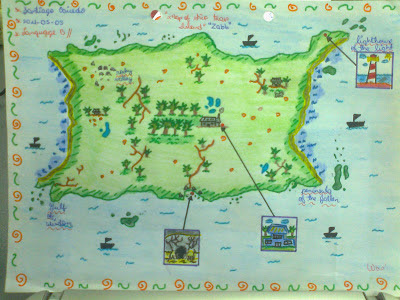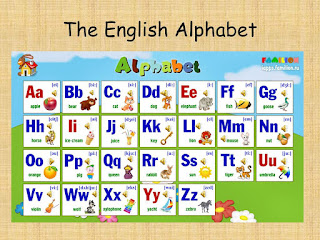Peter Harrington, first director and founder of COPEI. An Interview. (1)
 |
| Mr. Peter Harrington |
Mr. Peter Harrington is one of the most important names in the world of EFL teachers in Ecuador. His labor, sometimes titanic, marks a before and after in the field since he was the chief designer of COPEI, currently the number one academy in this country. He was also the Director of the English Department in Colegio Politécnico and it was his vision that allowed the creation of an innovative program now regarded as one of the best in Guayaquil,if not the best. He has also worked in Colombia and is currently residing in Mexico where he continues his neverending labor to offer quality education wherever is needed.
This interview where he talks about the beginnings of COPEI, the reasons for its success and English in general is offered in two parts of which this entry includes the first.
1. COPEI has been around for more than fifteen years already. What is in your words the reason why COPEI has been successful in such a difficult market?
I could write a monograph on this subject, as many factors combined to support the success of COPEI. Here are some of the reasons for COPEI's success:
I could write a monograph on this subject, as many factors combined to support the success of COPEI. Here are some of the reasons for COPEI's success:
Since COPEI was connected to COPOL and ESPOL,
we had the vision from the very beginning of creating a language academy that
would share the same high academic standards as those institutions.
This meant that we intended that our program would result in students actually
developing communicative competence - the ability to USE English in authentic
contexts, rather than just learning about English, which happens all too often
in language programs. For example, I was shocked to discover upon arriving in
South America, how little my 3 years of university Spanish coursework prepared
me for communicating in that language outside the classroom. I wanted to
create a program that would spare our students that unpleasant surprise.
Our goal was to increase access to
quality language instruction. This meant that the costs had to be kept at
levels affordable to middle class Ecuadorians. When I first arrived in
Guayaquil, I noticed that there were high quality academies charging very high
prices, and lower quality academies charging reasonable prices.
I wanted to create the first high quality affordable English program
in Guayaquil.
We held our ground, stuck to our principles.
People told us that the strategies we applied to keep quality high but
prices low would not work. I knew it would not be easy, but not impossible,
either. We worked hard with the energy and team spirit of pioneers with a
shared vision.
Two examples of strategies we used that nobody
thought would work, were reducing the hours spent in class, and offering
classes in unusual hours. By shifting more responsibility to students learning
outside of class, we lowered costs. Making this work involved a lot of
pedagogical innovations that were unknown in Ecuador at that time. We also
increased our operational capacity and market share by
offering courses at unheard of times: Saturday afternoons and all day Sundays.
People told us this would not work in Ecuador, that people there would never
study on Sundays. My own experience told me that Ecuadorians were very
motivated learners, open minded with a desire to improve their
futures through studies. I knew that if we built it… they would come!
The support of my bosses was a crucial factor
in the success of COPEI. Nobody know that this project would turn into the most
successful language academy in Ecuador - or one of the most successful of its
type in the world - when we began. I was very fortunate to have as my bosses,
people with vision who believed in me and the possibilities of COPEI. It was an
honor to work under people such as Washington Armas, Abel Alban, Luis
Garcia and Mario Luces. Their support made all the difference.
Finally, COPEI could never have reached its
current level of success without the hard work of those dedicated Ecuadorians
who worked tirelessly with such dedication and energy for so many years. People
like yourself, Luis. People like
Elizabeth Ortiz, Olga Gonzales, Irma Guzman, Kira Vera, Tito Hidalgo, Mariuxi
Briones, Gladys Ipanaque, Vanessa Avellan, Blanca Velez, Cecilia Pisco, and all
of the others who are too numerous to mention here. They are all a credit to
their country for proving that Ecuador is second to no other country in terms
of the resourcefulness, preparation, dedication, intelligence and creativity of
its people. We also counted on the contributions of people from other countries
and other organizations. People like the Australian, Peter Gravier, COPEI’s first academic coordinator, and
Americans like Jule Anderson and Mario Cuello. And we counted on support from partners who
believed in COPEI - people like Aranzazu
de Gomendirrutia of Alfa y Gamma magazine, and Karen Nieto of UCG. Of course,
without the support of ESPOL, we would never have come into existence in the
first place.
2. You were fundamental to the creation of COPEI.
How and why is that COPEI came into existence? What obstacles were there?
As the founder of the English program for COPOL,
I was charged with designing a program of studies that would be unique and
effective. I was told that the plan I submitted was very interesting
but too expensive to implement, and was asked to submit a more practical plan.
My counter offer was to maintain the plan as originally designed, but subsidize
the cost with income generated from the creation of a language academy. My
proposal was accepted and COPEI was born!
One of our biggest obstacles was our isolated
location in the installations of COPOL. We overcame this by creating a
transportation system, which at that time was unheard of for a language
academy. Later we were able to keep growing by renting space in other parts of
the city and country. This was risky as there were no guarantees that we would
be successful in the new locations. Fortunately, I had great bosses who
believed in us! Luis Garcia took the first step in authorizing the renting of
our first space outside of COPOL, our downtown branch. Mario Luces continued
this support by authorizing all of the remaining branches. What would we have
done without them?
3. As a teacher who has been in several countries already you
have a perspective others do not. In what regards to English, why is this
language of such great importance?
English has become the de facto universal
language of international communication. This may have begun due to the
prominence of English-speaking countries such as the U.S. and Great Britain,
but it now transcends any relationship to those countries. English now belongs
to the entire world and its influence is no longer limited by the influence of
English-speaking countries. Those who suggest that the rise in influence of
other countries will weaken the status of English as the universal language, do
not understand this. The Chinese do understand
and that is why there are more English language students there than in any
other country. Although learning other world languages is also valuable, English
will continue to be the universal language of international communication for
the foreseeable future and is therefore a logical first option for foreign
language studies.
(Continued next entry)



Comments